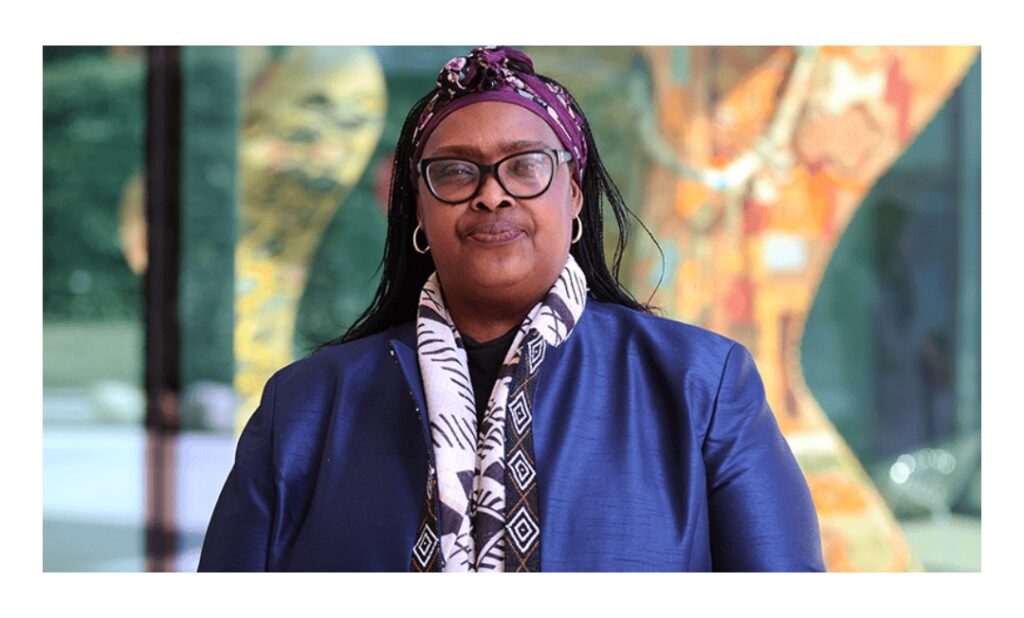The annual number of new HIV infections in West and Central Africa fell by 46 per cent between 2010 and 20230, according to the Joint United Nations Programme on HIV/AIDS (UNAIDS).
Berthilde Gahongayirein, the UNAIDS Regional Director for the region, disclosed this earlier this week during the unveiling of the latest Regional AIDS Update Report in Dakar, Senegal. The report highlights significant strides in the fight against HIV but stresses the urgent need for continued efforts.
“Almost exactly 10 years ago, an MSF [Médecins Sans Frontières, also known as Doctors Without Borders] report described our region as being ‘left behind’,” Gahongayirein said. “Today, despite difficult political and security contexts and the lasting impact of Covid-19, we are showing encouraging results.”
However, she noted with concern that key populations, adolescents, and young women remain disproportionately affected. “In 2023, adolescent girls and young women accounted for 19% of all new HIV infections in our region. In this age group, by 2022, 8 out of 10 new infections were among girls,” the director said.

While disparities persist, the report highlights progress in HIV treatment. The number of adults receiving antiretroviral therapy has more than doubled since 2015. Today, 81 per cent of people living with HIV know their status, 76 per cent are receiving treatment, and 70 per cent have achieved viral load suppression. This progress means countries like Burundi and the Democratic Republic of Congo are nearing the ambitious 95-95-95 targets for HIV testing and treatment.
“AIDS-related deaths have fallen by 55% between 2010 and 2023,” the Gahongayirein stated. Yet, significant gaps remain, particularly in pediatric HIV treatment. “Only 35% of children living with HIV were receiving treatment in 2023, and over half of the region’s pregnant women with HIV were not receiving antiretroviral treatment.”
The fight against HIV goes beyond treatment. UNAIDS highlights the ongoing struggle against stigma and discrimination. Surveys reveal concerning levels of prejudice, with 33 per cent of people in Gabon and 79 per cent in Mauritania holding discriminatory attitudes towards people living with HIV.
Additionally, the UNAIDS Regional Director for West and Central Africa said the age of consent for HIV testing remains restricted in 10 countries, requiring parental or guardian consent for those under 18. This issue, as raised in a May 2021 HumAngle investigative report, “The Discreet Lives Of Women Living With HIV In Nigerian IDP Camps,” can be a barrier to essential healthcare.
Gahongayirein also pointed out that funding remains a crucial challenge.
“While international resources for HIV increased by 10% in 2023, domestic resources fell by 3%, making countries more reliant on external donors. The UNAIDS has proposed a new holistic approach to ensure sustainability, encompassing political commitment, enabling laws and policies, equitable financing, science-based services, and robust delivery systems,” according to the UNAIDS report reviewed by HumAngle.
Aptly named “The Urgency of the Moment: AIDS at the Crossroads,” the report emphasises the critical need for scaling up prevention, eliminating gender inequality, and ending HIV-related stigma and discrimination to achieve the goal of ending AIDS by 2030. “A combination of strong political commitment, technical expertise, and community mobilisation is needed,” Gahongayirein urged.
The UNAIDS Regional Director thanked international partners like France, Luxembourg, and Canada for their continued support, underscoring the collaborative effort required to sustain progress.
“We have made progress in reducing new infections, except among adolescents. We have made progress in access to treatment, but very few children have access to antiretroviral treatment. The number of HIV deaths has fallen. However, we are at a crossroads, and the urgency of the moment cannot be overstated,” she concluded.
Support Our Journalism
There are millions of ordinary people affected by conflict in Africa whose stories are missing in the mainstream media. HumAngle is determined to tell those challenging and under-reported stories, hoping that the people impacted by these conflicts will find the safety and security they deserve.
To ensure that we continue to provide public service coverage, we have a small favour to ask you. We want you to be part of our journalistic endeavour by contributing a token to us.
Your donation will further promote a robust, free, and independent media.

